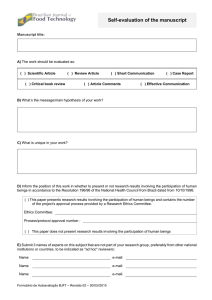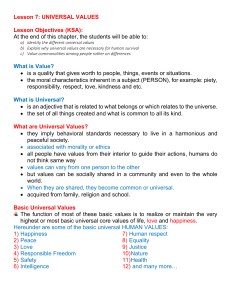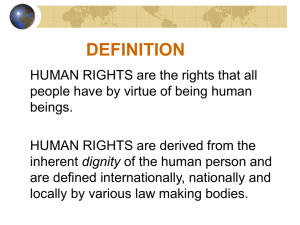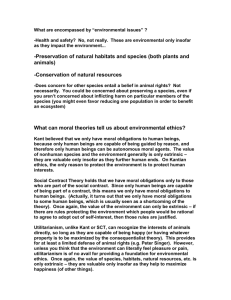moral reasoning across the curriculum outline
advertisement
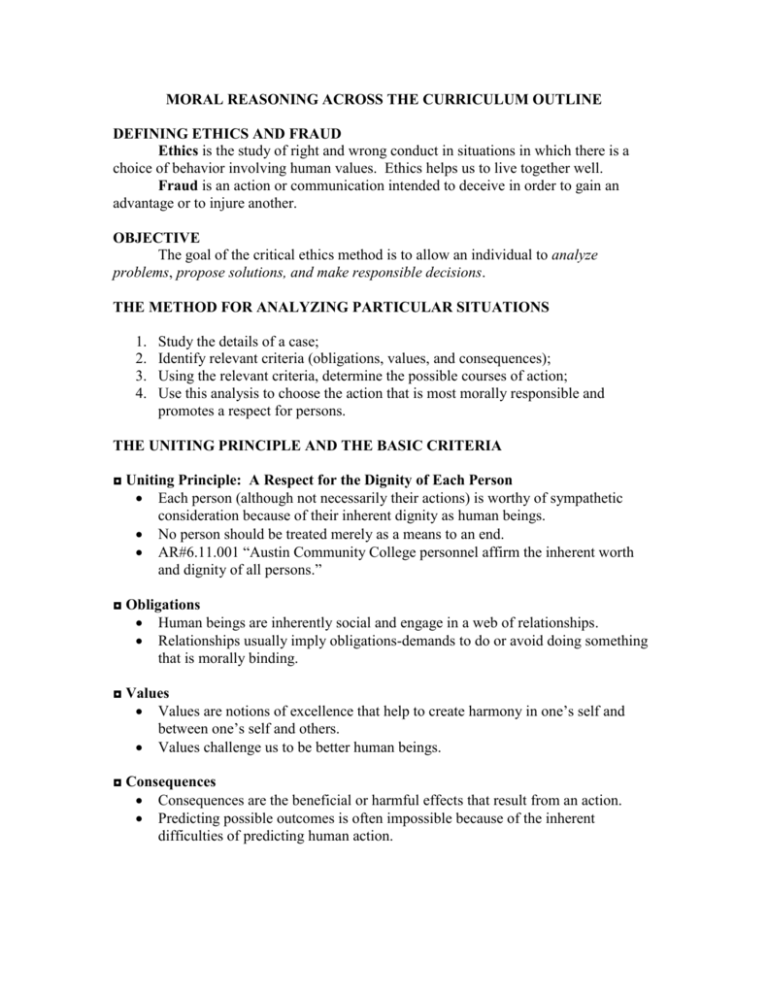
MORAL REASONING ACROSS THE CURRICULUM OUTLINE DEFINING ETHICS AND FRAUD Ethics is the study of right and wrong conduct in situations in which there is a choice of behavior involving human values. Ethics helps us to live together well. Fraud is an action or communication intended to deceive in order to gain an advantage or to injure another. OBJECTIVE The goal of the critical ethics method is to allow an individual to analyze problems, propose solutions, and make responsible decisions. THE METHOD FOR ANALYZING PARTICULAR SITUATIONS 1. 2. 3. 4. Study the details of a case; Identify relevant criteria (obligations, values, and consequences); Using the relevant criteria, determine the possible courses of action; Use this analysis to choose the action that is most morally responsible and promotes a respect for persons. THE UNITING PRINCIPLE AND THE BASIC CRITERIA ◘ Uniting Principle: A Respect for the Dignity of Each Person Each person (although not necessarily their actions) is worthy of sympathetic consideration because of their inherent dignity as human beings. No person should be treated merely as a means to an end. AR#6.11.001 “Austin Community College personnel affirm the inherent worth and dignity of all persons.” ◘ Obligations Human beings are inherently social and engage in a web of relationships. Relationships usually imply obligations-demands to do or avoid doing something that is morally binding. ◘ Values Values are notions of excellence that help to create harmony in one’s self and between one’s self and others. Values challenge us to be better human beings. ◘ Consequences Consequences are the beneficial or harmful effects that result from an action. Predicting possible outcomes is often impossible because of the inherent difficulties of predicting human action.
